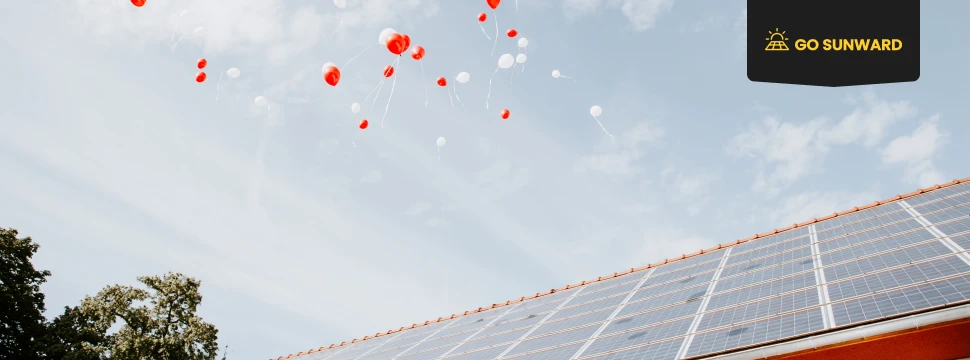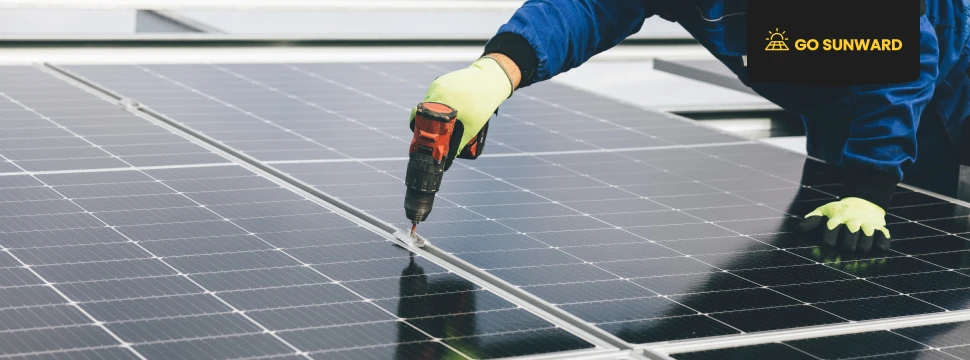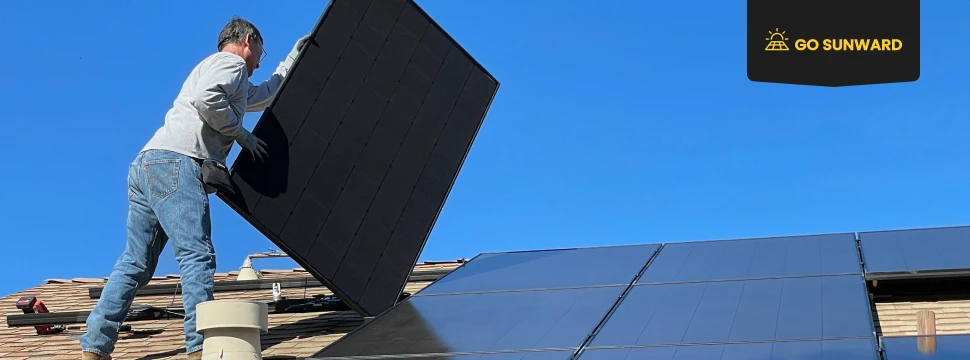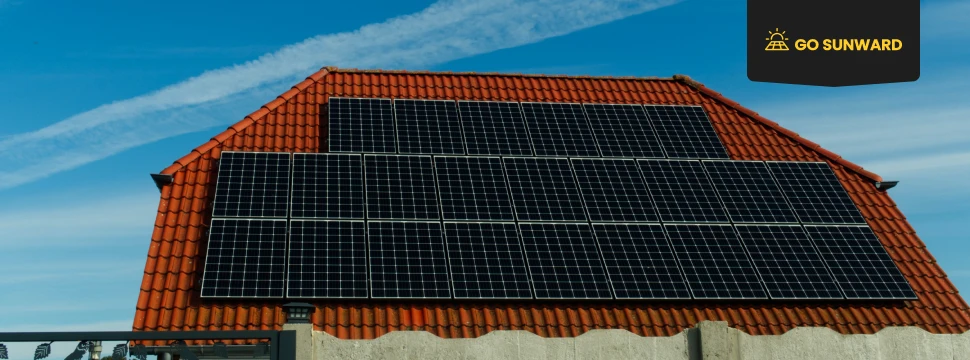How Long Do Solar Panels Last?
Solar energy has emerged as a powerful player in the world of renewable energy, gaining increasing popularity as individuals, communities, and industries seek sustainable alternatives to traditional power sources. With solar panel’s potential to reduce carbon emissions and dependence on fossil fuels, it has become a driving force in the quest for a lower carbon future. However, for those considering harnessing the sun’s energy, a key question remains: How long do solar panels last?
In today’s world, where environmental sustainability and energy efficiency are at the forefront of global concerns, understanding the lifespan of solar panels is essential. As more people and businesses turn to solar power to meet their energy needs, it becomes imperative to comprehend the longevity of the technology. After all, the durability and reliability of your system play a pivotal role in determining the long-term viability and financial feasibility of solar energy systems.
In this article, we will delve into the intricacies of solar panel lifespan, exploring the factors that influence it and how you can maximize the value of your investment.
The Lifespan Of Solar Panels
When we refer to the “lifespan” of solar panels, we are essentially talking about the period of time over which these photovoltaic devices remain functional and capable of efficiently converting sunlight into electricity. In simpler terms, it represents the number of years during which solar panels can reliably generate clean and sustainable energy.
This concept is essential for anyone considering the adoption of solar energy, as it provides insight into how long you can expect your solar system to serve as a source of power for your home or business.
According to our research, the typical lifespan of residential solar panels typically falls within the range of 25 to 30 years. This is a testament to the durability and longevity of solar technology when well-maintained and properly installed. Solar panels are engineered to withstand various environmental conditions and provide consistent electricity production throughout their operational years. However, it’s essential to recognize that this lifespan doesn’t imply that solar panels suddenly cease functioning after three decades. Instead, it suggests that, beyond this point, their efficiency may gradually degrade.
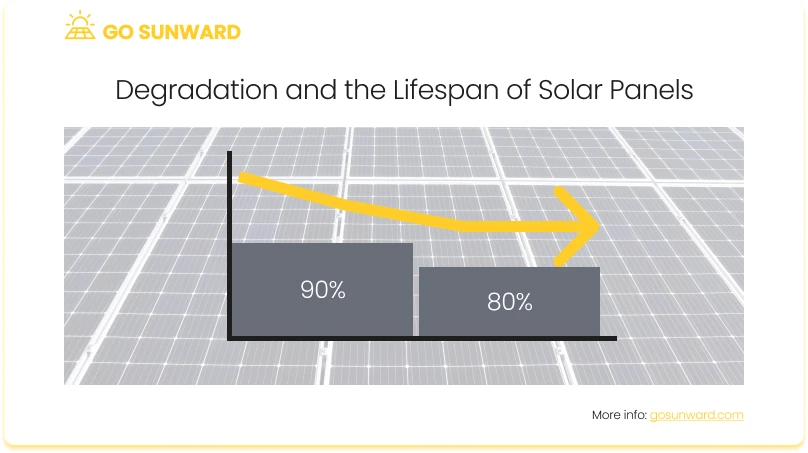
Factors Affecting Longevity
Several factors come into play when determining the lifespan of solar system:
- Quality and Manufacturing: One of the most critical factors in determining the lifespan of solar panels is the quality of the materials used and the manufacturing processes employed to make the modules. High-quality solar panels are built to withstand environmental stressors and have a longer operational life. Panels produced with inferior materials or subpar manufacturing techniques may be more susceptible to wear and tear, leading to a shorter lifespan.
- Maintenance and Cleaning: Regular maintenance and cleaning play a pivotal role in extending the life of your solar panels. Over time, dust, dirt, bird droppings, and other debris can accumulate on the surface of the panels, diminishing their efficiency. Regular cleaning not only ensures optimal energy production but also prevents potential long-term damage. Additionally, routine inspections can help identify any issues early on, allowing for timely repairs or replacements if necessary. By establishing a maintenance schedule and adhering to it, you can significantly enhance the lifespan of your solar PV panels and reduce degradation.
- Environmental Conditions: The environment in which your panels are installed can profoundly impact their performance and durability. Climate, weather patterns, and geographical location all play crucial roles. Solar panels are designed to withstand a range of conditions, but extreme temperatures, excessive humidity, hail, or heavy snowfall can affect their efficiency and potentially lead to physical damage. Furthermore, the geographical location can impact the level of solar radiation received, affecting energy production. Understanding your local environmental conditions and taking appropriate precautions, such as selecting panels rated for your region, can help ensure that your solar panels last longer.
Extending the Lifespan of Solar Panels
Extending the lifespan of your panels is not only financially prudent but also contributes to more sustainable energy generation. Here, we’ll explore practical tips and strategies for maximizing the life of your solar panels.
Tip #1: Maintenance
Routine maintenance and inspection are fundamental to ensuring the longevity of your panels. Start by scheduling regular check-ups to examine the condition of your panels and their components. This includes inspecting wiring, connectors, and the mounting structure for any signs of wear or damage. Be sure to follow the manufacturer’s guidelines for maintenance, and when in doubt, consult with a professional.
Additionally, keeping the panels clean is essential. Regularly remove dirt, leaves, bird droppings, and any other debris that may accumulate on the surface. This not only ensures optimal energy production but also prevents potential long-term damage to the panels.
Tip #2: Monitoring and Performance
Investing in monitoring systems is a smart way to detect issues early and maintain the efficiency of your panels. These systems provide real-time data on the performance of your solar array, allowing you to identify and address any problems promptly.
Monitoring systems can alert you to drops in energy production, which could be caused by issues such as shading, dirt, or technical malfunctions. By addressing these problems swiftly, you can prevent them from compromising your panel’s longevity and overall performance.
Tip #3: Upgrading and Replacements
As technology evolves, it’s worth considering when and how to upgrade components or replace older panels to maximize your system’s longevity. Solar panel technology continually improves, leading to increased efficiency and durability. If your panels are reaching the end of their expected lifespan, replacing them by investing in newer, more efficient panels may be cost-effective.
Upgrading components such as inverters or adding energy storage solutions like batteries can also enhance your system’s performance and extend its lifespan. Additionally, consider taking advantage of any warranty or replacement programs offered by the manufacturer.
Environmental Benefits of Long-Lasting Solar Panels
The environmental benefits of long-lasting solar panels extend far beyond their capacity to generate clean energy. By prolonging the operational life of solar panels, we can significantly reduce the environmental footprint associated with these renewable energy systems’ manufacturing, installation, and disposal.
Long-lasting solar panels play a crucial role in waste reduction within the renewable energy sector. When solar panels have a longer operational life, they require replacement or disposal less frequently. This translates into a decreased need for manufacturing new panels, reducing the consumption of raw materials and energy resources. Moreover, extending the life of existing solar panels helps divert old panels away from landfills, where they could contribute to electronic waste and potential environmental hazards.
The environmental advantages of durable solar panels also encompass a significant reduction in carbon emissions. Solar panels are often associated with reducing greenhouse gas emissions by generating clean, renewable electricity. However, when solar panels have a longer lifespan, the reduction in carbon emissions extends beyond the electricity they produce. By reducing the frequency of manufacturing and disposal, long-lasting solar panels indirectly lower the carbon footprint associated with their entire life cycle. This means that the initial carbon emissions linked to panel production and installation are spread over a more extended period, effectively reducing the overall carbon footprint of solar energy systems.

Conclusion
This article has effectively addressed the pivotal question: “How long do solar panels last?” Beyond its financial implications, the duration for which your solar system remain productive holds profound environmental significance.
Durablity plays a crucial role in reducing waste, curbing carbon emissions, and fostering a more sustainable approach to renewable energy production. Therefore, when assessing the feasibility and economic viability of a solar energy system, it’s imperative to factor in the operational lifespan of your solar panels.
By understanding the factors influencing longevity and implementing best practices, homeowners not only harness the sun’s energy efficiently but also contribute to a more sustainable world.

